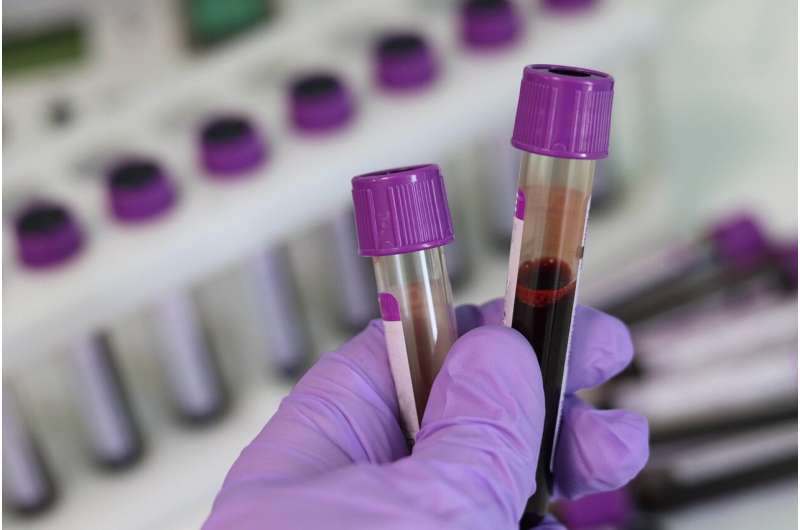Nearly half of blood cancer patients insufficiently protected against omicron

Nearly 50 percent of blood cancer patients do not have detectable levels of antibodies able to neutralize the omicron SARS-CoV-2 variant after a third vaccine dose, according to new laboratory data from the Francis Crick Institute and The Royal Marsden NHS Foundation Trust published as a Research letter in The Lancet.
This is the first report of functional immunity against omicron in a pan-cancer patient cohort and results highlight the importance of a 4th 'booster' dose for patients with blood cancers to protect them from the surge in omicron cases.
As part of the ongoing CAPTURE study, funded by The Royal Marsden Cancer Charity, researchers have been monitoring the immune responses of hundreds of patients with different types of cancer, after one, two and three doses of COVID-19 vaccine.
Using a highly accurate test, a viral neutralization assay developed at the Crick, the team measured levels of antibodies which specifically block the omicron variant from infecting cells. The test assesses whether levels of neutralizing antibodies in the blood are sufficient to block at least 50 percent of virus infection under laboratory conditions.
Results for patients with solid tumors were very positive. A third dose of COVID-19 vaccine effectively increased the proportion of patients with levels of antibodies able to neutralize omicron (90 percent compared to just 37 percent after the second dose). Researchers suggest that these patients can expect similar levels of protection to people without cancer.
However, when the research team examined blood samples from patients with blood cancers, they found that people in this vulnerable group were far less likely to have detectable levels of antibodies against omicron. Just 19 percent of patients had detectable levels after two doses and while a third dose was effective for many, 56 percent of patients benefitted from the boosting effect.
UK guidance already says that adults and children aged 12 and over who are severely immunosuppressed should have three primary doses of the COVID-19 vaccine, followed by a fourth booster dose.
Dr. Samra Turajlic, lead author and group leader at the Crick and Consultant Medical Oncologist at The Royal Marsden NHS Foundation Trust, said: "The pandemic has been especially difficult for people living with cancer and up-to-date information about immunity levels are particularly important for this vulnerable group.
"We now know that the immune response to vaccines in patients with solid cancers are robust after three doses as compared to people without cancer, even against the new omicron variant. But for people with blood cancers, omicron poses a greater risk. These patients should remain cautious and come forward for their 4th booster dose as soon as it's available to them.
"Protecting this vulnerable group is important, especially in the light of the recent easing of COVID-19 restrictions in the UK, such as ending mandates requiring people to wear a face mask. Public health measures must be inclusive and supportive of everyone, including vulnerable people and their carers."
More information: Annika Fendler et al, Omicron neutralising antibodies after third COVID-19 vaccine dose in patients with cancer, The Lancet (2022). DOI: 10.1016/S0140-6736(22)00147-7




















